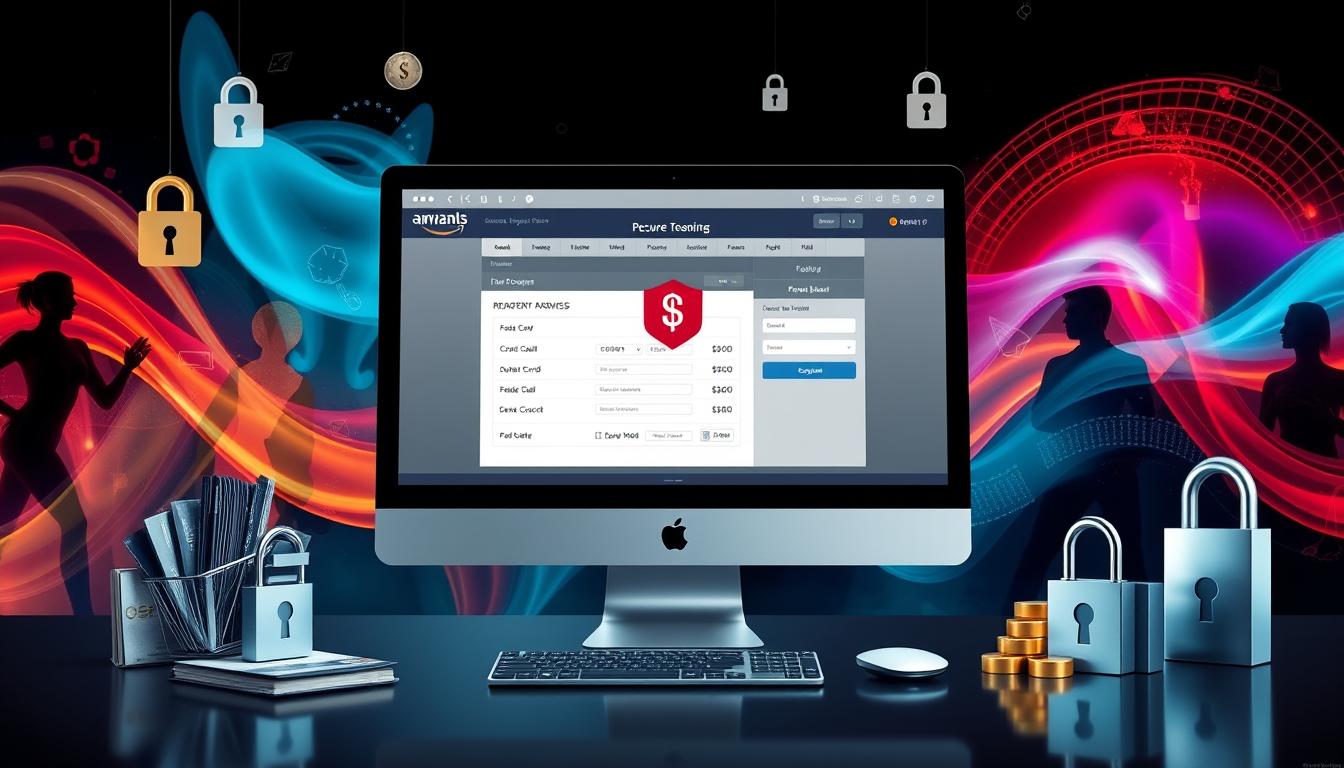As a business owner, understanding PCI Non Compliance Fee is crucial if you process and transmit credit card details. Becoming PCI compliant will not only help you avoid PCI Non Compliance Fee, but it will also protect your organization, customers, and reputation. So, how do you avoid the PCI Non Compliance fee, and what exactly is it?
In this article, we will discuss the importance of adhering to the Payment Card Industry Data Security Standards (PCI DSS), the impact of non-compliance on your business, and actionable strategies to achieve and maintain PCI compliance. We will also guide you on how to choose the right merchant services provider that can help you stay compliant and avoid unnecessary non-compliance fees.
Understanding the PCI Non Compliance Fee
PCI Non Compliance implies a business’s failure to adhere to the PCI DSS guidelines, which may lead to hefty non-compliance fees. Payment Card Industry Data Security Standards (PCI DSS) are established outside government bounds by US credit card networks to implement industry data security policies. The non-compliance charge is meant to prompt businesses to meet predefined security standards.
What is PCI Non Compliance?
PCI Non Compliance occurs when a business does not follow the Payment Card Industry Data Security Standards (PCI DSS) established to protect cardholder data and maintain a secure payment environment. Failing to comply with these standards can result in PCI DSS Non Compliance Fees and other potential consequences.
The Impact of Non Compliance on Your Business
The Impact of Non Compliance can be severe, as it may attract considerable financial penalties, depending on the specific situation and the payment processing provider’s policies. These penalties can amount to tens or even hundreds of thousands of dollars, putting the business at risk. Additionally, persistent non-compliance could lead to account termination by processors if standards are not met within a reasonable period, typically assessed three months after the merchant’s account is approved.
Non Compliance with PCI standards can have severe financial consequences, putting your business at risk and potentially leading to account termination.
Common Misconceptions About PCI Fees
- Visa and Mastercard impose PCI non-compliance fees directly – This is incorrect, as these fees stem from the processor and are discretionary.
- Non-compliance fees and compliance fees are the same thing – There are differences between non-compliance fees, which are penalties for non-adherence, and compliance fees, which may include a suite of compliance assistance services.
Knowing the facts about PCI fees and understanding the consequences of non-compliance can help businesses steer clear of potential costly penalties and protect their sensitive payment environments.
Strategies to Achieve PCI Compliance
Attaining and maintaining PCI compliance is essential to protect your business from non-compliance fees and possible security breaches, ensuring customer confidence, and safeguarding cardholder information. This section will provide guidance on assessing your current compliance status, implementing required security measures, and completing the self-assessment questionnaire (SAQ) to maintain compliance standards.
Assessing Your Current Compliance Status
To determine your PCI compliance status, begin by identifying your merchant level based on the volume of transactions processed and specific requirements from credit card providers. Next, identify PCI validation requirements relevant to your business, which can include:
- Establishing a secure network,
- Maintaining a vulnerability management program,
- Implementing stringent access controls,
- Monitoring and testing networks, and
- Developing and maintaining an information security policy.
Implementing Required Security Measures
Implementing appropriate security measures is key to achieving PCI compliance. Here are some essential steps to consider:
- Use only approved entry devices and validated payment software to process transactions.
- Avoid unnecessary storage of sensitive card data and encrypt the transmission of data across public networks.
- Protect your network with firewalls and regularly update antivirus software.
- Employ encrypted and password-protected wireless routers, changing default passwords and settings.
- Regularly inspect your business for card skimming devices and other security threats.
- Adhere strictly to the PCI Data Security Standard (DSS).
By following these guidelines, your business can work towards protecting cardholder data and complying with PCI standards, ultimately avoiding non-compliance fees.
Completing the Self-Assessment Questionnaire
To validate PCI compliance, businesses – particularly those in retail and e-commerce – must complete the Self-Assessment Questionnaire (SAQ) and undergo quarterly network scans if applicable. The SAQ process helps you evaluate your adherence to PCI DSS requirements and provides a clear understanding of your business’s compliance level.
Consult with your merchant service provider for assistance with understanding and completing the SAQ. Collaboration with your provider can help you address any compliance shortcomings and potentially request a refund of unwarranted non-compliance fees.
Choosing the Right Merchant Services Provider
Selecting a PCI-compliant merchant services provider is critical not only for maintaining required security standards but also avoiding costly non-compliance fees. It’s essential to verify a processor’s compliance level and capabilities in assisting your business throughout the journey towards achieving and maintaining compliance. This includes evaluating a processor’s credentials and the tools or services they offer that can help your company stay compliant in the long run.
“Choosing a PCI-compliant merchant services provider is crucial to establish and maintain security standards and avoid non-compliance fees.”
Here are some key points to consider when searching for a merchant services provider that is PCI compliant:
- Check for industry certifications that confirm the processor’s commitment to data security and PCI compliance.
- Ensure that the processor has a reliable process for onboarding new merchants and guiding them towards achieving compliance.
- Confirm if they offer ongoing support and education related to PCI compliance and data security best practices.
It’s also crucial to compare different merchant services providers in terms of their features, pricing, and customer support before making a decision. To facilitate your decision-making process, the table below illustrates the key factors to take into account when selecting a PCI-compliant processor:
| Feature | Why it Matters |
|---|---|
| PCI compliance assistance | Having an expert guide your business through the initial compliance process and provide ongoing support is essential to maintain your PCI compliance status. |
| Security and fraud protection features | Ensure that your processor offers robust security features that safeguard sensitive cardholder data and protect your business from fraud. |
| Affordable and transparent pricing | Choose a provider with a flexible pricing structure that fits your budget, without hidden fees that may hinder your business growth. |
| Customer support and responsiveness | Opt for a processor with responsive and knowledgeable customer service, as they can assist you in resolving issues promptly, keeping your business running smoothly. |
In summary, when selecting a merchant services provider, it is essential to choose one that is PCI compliant and can help your business navigate the complexities of maintaining compliance. To achieve this, gather information on their industry certifications, the quality of their onboarding process, and their commitment to providing ongoing support and education related to PCI compliance and data security best practices. By taking these factors into consideration, you can make an informed decision and mitigate the risks of incurring non-compliance fees, ensuring the safety of your customers’ transactions and the reputation of your business.
Conclusion
Achieving and maintaining PCI compliance is indispensable for businesses that process and transmit credit card data. Beyond avoiding costly PCI Non Compliance Fees, adhering to the Payment Card Industry Data Security Standards (PCI DSS) safeguards your sensitive customers’ information, thereby bolstering trust and reinforcing your reputation in the market.
Effective strategies to cultivate a secure payment environment include assessing your current compliance status, implementing the necessary security measures, and completing the Self-Assessment Questionnaire. By staying up-to-date with PCI DSS guidelines and working closely with a reliable, PCI-compliant merchant services provider, your business can effectively prevent security breaches and safeguard customers’ financial information.
In conclusion, meeting and surpassing PCI DSS standards not only wards off Non Compliance Fee penalties imposed by payment processors but also promotes a secure and trustworthy business environment for your customers. Keep operations, practices, and partnerships aligned with industry standards, and rest assured that your business will enjoy financial savings and heightened consumer confidence.








Comments (0)